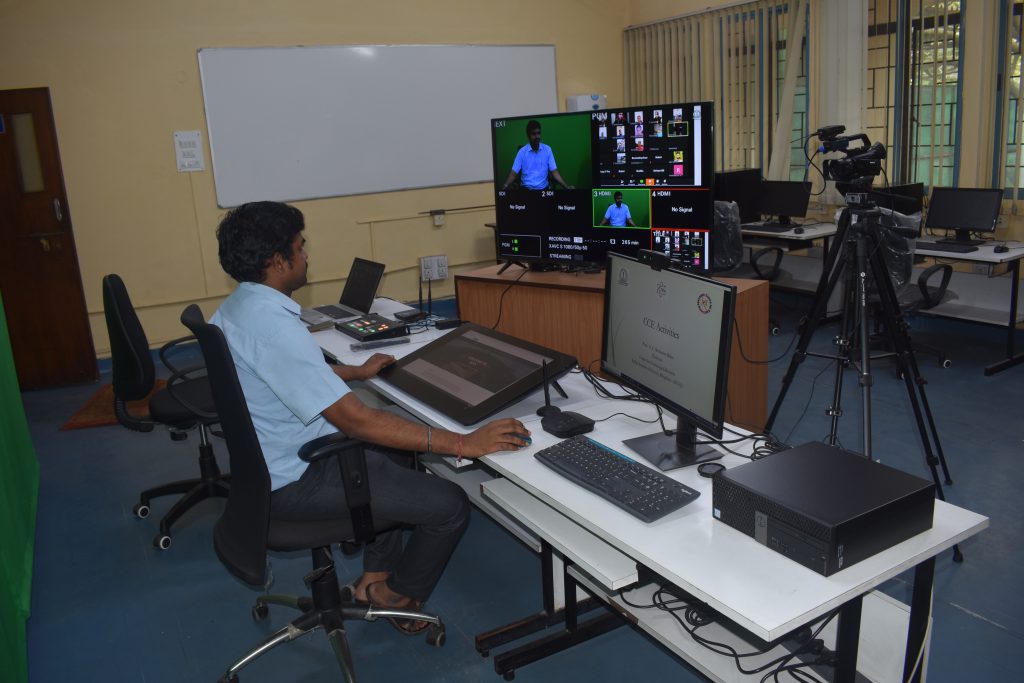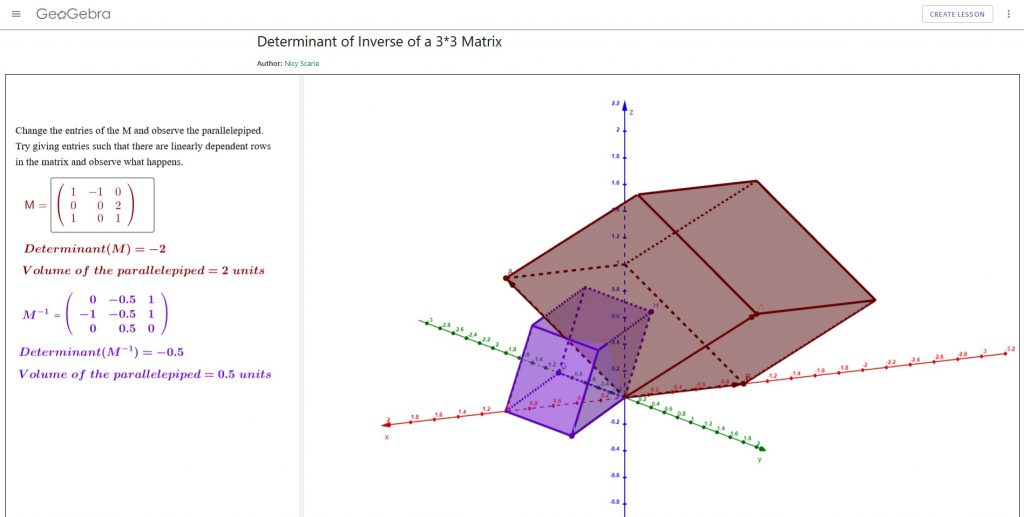Navigating the new normal of online learning

In early 2020, as the nation went into lockdown, educational institutions across the country were forced to move their classes online. This was not a smooth transition, with technical glitches, connectivity issues and many awkward situations. Attreyee Ghosh, Associate Professor at the Centre for Earth Sciences, recalls one such incident. In the beginning, she used to ask her students to switch on their video when they were speaking. “One day a student said, ‘Ma’am, I’m in my hostel room and I’ve got all my washed clothes hanging behind me. Do you really want me to turn on my video?’ I said ‘No, no. It’s okay, forget it.’ After that, I kind of gave up. I don’t want to see things that I don’t want to see!”
This uncomfortable coming together of the personal and the professional has become the new normal. Several faculty members and students recount their experiences of how they have navigated this new medium of teaching, and the challenges they have faced over the past year. Some of them also describe the positive side of online teaching. The Institute, for its part, has introduced some initiatives in response to the current situation, including setting up studios where faculty members can record lectures and a fully online MTech degree programme. As faculty and students adapt to the evolving situation, academic institutions may also need to prepare for a future in which the best of both worlds – online and offline – coexist.
An unsatisfactory experience
Left with no choice but to teach online, faculty members at IISc have been making the best of the situation, but many of them admit that it has been an unsatisfactory experience, riddled with challenges. For one, the back-and-forth interactions that happen in class have dipped drastically, says Ramray Bhat, Associate Professor at the Department of Molecular Reproduction, Development and Genetics, and a recipient of the Prof Priti Shankar Teaching Award in 2020. “Teaching is much more than just being able to pass on words or even slides to students. There is a performance of sorts … one communicates through so many more dimensions when one teaches [in person]. Creating a dialogue with the students is very important, and this is very difficult to do online,” he says. Overall, many faculty members say that students don’t participate as much in online classes, and that faculty-student interactions are reduced to questions like, “Are you able to hear me?” and “Are my slides visible?”
The back-and-forth interactions that happen in class have dipped drastically
Not being able to see the students’ faces in class has also left faculty members unsure of whether what they are saying is getting through to the students. “When we are teaching in person, the expressions of the students tell you a lot,” says Attreyee. “It’s very gratifying when students grasp a concept you are teaching. In a physical class, you can see their eyes light up – that is a very satisfying feeling for an instructor.”
For some subjects like mathematics, the challenges are particularly stark. Purvi Gupta, Assistant Professor in the Department of Mathematics, explains that presenting long technical proofs has become especially difficult on a small screen. “The content is very, very restricted.

Adding to their woes is the extra preparation that online teaching requires. Ramsharan Rangarajan, Assistant Professor in the Department of Mechanical Engineering, who also received the Prof Priti Shankar Teaching Award last year, says that presenting learning material online in an effective manner is a big challenge. “My wife used to poke fun at me saying, ‘Are you the one taking the class or the students?’”
Having to conduct practicals online has also been challenging for both students and faculty. Even though faculty members have been recording videos to demonstrate experiments, and conducting extensive discussions on troubleshooting afterwards, students confess that they gain experience only when they can actually perform these experiments themselves. “Even though I’m in my final year right now, I don’t feel very confident when it comes to my lab skills,” says Vibhanshu Golia, a fourth semester undergraduate (UG) student.
Faculty members also find it tough to design and evaluate exams online because it is much harder to prevent students from sharing answers among themselves, something that several students also admit has happened. ”But at the same time, if you have an erratic Internet [connection] like I did at home, then the professor might think, ‘Oh this girl went away, she might be cheating,’” says Bhoomika Bhat, another UG student.
Missing human touch
Connectivity issues have also left students in fear of missing out on important lessons and being unable to catch up. Aastha Munjal, an Integrated PhD student in the Department of Microbiology and Cell Biology, explains that at the beginning of the lockdowns, when everyone at home had to work and attend classes online, the bandwidth would get overloaded, and she would lose connection frequently. “I felt quite helpless. I actually remember feeling that everybody else is able to catch up and I’m not.” It felt very alienating, she adds.
Bhoomika echoes this feeling, saying that if she missed out on a few minutes and could not follow what was going on, she felt like quitting the class. Initially, a lot of professors did not record their classes, and if students lost connectivity, that content would be gone forever, the students say. Eventually things stabilised, and almost all faculty members now record their classes on Teams or upload them on private channels on YouTube.
Technical issues aside, perhaps the biggest drawback of online learning is the lack of social interactions. “I definitely enjoy talking to students, given that our jobs are quite solitary. In mathematics, we don’t work in a lab environment and a typical day for me is just being by myself solving problems. The most social aspect of my job is teaching,” says Purvi. Having joined the Institute just before the pandemic hit, she also says that she is eagerly waiting to get back to the times where faculty are talking among themselves about how their classes are going and exchanging notes over lunch.
Most students are also waiting to get back to the physical classroom. Nikhita Kirthivasan, a UG student says, “In online classes, we still do get an opportunity to learn, but the interaction of the class is constrained by the fact that there’s a lot of nonverbal cues that you’re missing out on, both from your colleagues and from the professors.” Aastha adds, “Even the most introverted friends of mine were ultimately very fatigued by the online platform.”
This phenomenon of “zoom fatigue” has been particularly hard on students who have to sit in front of their laptop for hours together. Bhoomika says, “We all have lower attention spans now – nobody can sit through an entire class. In a physical class, at least when you zone out, there is someone around who’s paying attention and you’re motivated to listen.” Staring at a screen for long hours is even harder for people like Arkadip Basu, an associate of Walmart and currently a student of IISc’s new MTech online sponsored degree programme. “Being working professionals, all of our development activities are online, hence we spend a significant amount of time in front of our laptops. Now with classes to attend as well, that screen time has increased a lot,” he adds. “The new programme is very useful as continuing education for people like me. But if I were on campus, I’d visit the library quite often.”
The bright side
Fortunately, there is a bright side to this situation. Several students and faculty members see a lot of benefits to having classes online. “I really like the idea of having recorded lectures at your disposal. I could watch those before the exams to prepare,” says Vibhanshu. Some people are good at multitasking, and for them especially, online classes allow them to be more productive. Bhoomika recounts how a lab mate of hers logs into class on his mobile phone while working in the lab, and still manages to ask the right questions.
“In some ways, [online teaching] has made things easier; you can sit in the comfort of your home or office and teach,” explains Attreyee. “If you forget something, you can have your notes before you and take a look. Earlier, if I was travelling for a meeting outside Bangalore, I would have had to cancel my classes, but now we have the option of conducting the classes online.”
Purvi adds that another advantage is that for some students, there is a certain anonymity that the online classroom offers that might encourage them to speak up – at least in the chat – which they would otherwise hesitate to do in a physical class.
The future of the classroom
Some faculty members like Ramsharan are not entirely convinced about the benefits of teaching online, but even he admits that we can no longer depend entirely on “pen and paper or chalk and blackboard”. He says that it would be prudent to prepare for the future when something like this may happen again, and to run some courses in hybrid mode.
The Institute has already taken steps to prepare for that future. “IISc had previously recognised the disruptive role of educational technologies in 21st century learning. These can not only enhance a regular student’s learning experience but also bridge the space-time-opportunity gap by making the content accessible to a broader audience. A learner can learn from anywhere, at any time, and any pace. The early days of the pandemic brought into sharp focus the need to use these technologies to engage with the learners in the online mode,” explains Rajesh Sundaresan, Dean, Division of Electrical, Electronics and Computer Sciences. He and several faculty members including KVS Hari and GL Sivakumar Babu coordinate IISc’s Knowledge E-Learning Network (I-KEN), housed in the Centre for Continuing Education.
I-KEN provides high-end infrastructure to help faculty members record and create online courses and interactive videos, and provide a more immersive learning experience. I-KEN also assists faculty in the new MTech (Online) degree programme.
“For both the regular and the MTech (Online) courses, we have a Moodle platform, a learning management system that hosts courses and stores recordings of the classes,” explains Nicy Scaria, a Project Scientist at I-KEN. “We enhance the quality of those videos by editing and adding new content or by embedding interactive plugins. We also create a table of contents so that students can directly go to a particular timestamp in the video,” she says. Krishna Chaythanya, a PhD student from the Department of Electrical Communication Engineering (ECE) and a Teaching Assistant for a regular Data Analytics course, agrees. “I think Moodle is definitely a very useful platform to have. It is easier to search for content, and there are discussion forums. Even tests are now conducted through Moodle.”

The I-KEN team constantly strives to make the online classroom experience better, Nicy adds. In July 2021, six faculty members shared their online teaching experiences in an I-KEN workshop. Nicy says that the response was overwhelming and that the tips and feedback shared by the speakers helped many others. “There are still some issues with student engagement and assessment when everything is online, but everybody is learning.”
Nicy also explains that the online mode is only gaining momentum. “Even if the pandemic is over and offline classes will start, the feedback from professors is that they can create resources useful for the coming semesters as we shift to a hybrid or in-person mode of teaching.”
” A large part of our world is deprived of these choices and privileges”
Complaints about online teaching aside, Ramray points out that it is ultimately a matter of privilege to have this alternative and access to it. In rural India, a lot of children and young people who have the right to education have been deprived of it. A large section of society cannot afford devices such as smartphones, let alone laptops. Many cannot even afford to buy a data pack for their mobile phones. Krishna points out that in two of his courses, there were students from Jammu and Kashmir who were unable to attend classes that were live streamed due to the Internet shutdown. They would have to wait for the class to end and then try to get to an area with mobile connectivity, and download the recording.
“A large part of our world is deprived of these choices and privileges,” emphasises Ramray. “It is incumbent on us to realise that and to make the best use of what we have, and be thankful for it.”




